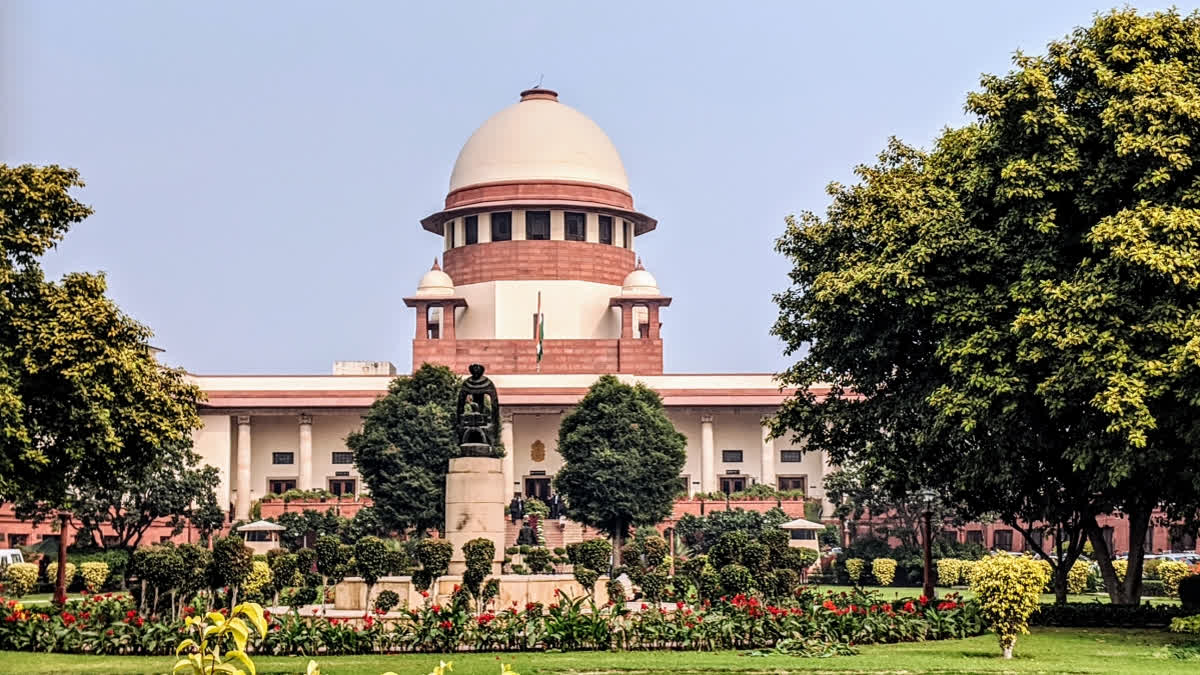New Delhi: The Supreme Court has refused to entertain a plea challenging the Karnataka High Court's order, which quashed an FIR in a case of illegal storage of huge quantities of cow meat in a godown, saying the entire case of the prosecution is based on unauthorisedly and illegally collected samples of the meat.
A bench comprising Justices Abhay S Oka and Ujjal Bhuyan said the sample collected by the assistant director of the veterinary department was completely illegal and there was no error in the view taken by the High Court.
"The crux of the matter is that the sample of the meat was admittedly collected by the Assistant Director, who had no authority in law to collect the sample. He did not collect the sample after notice to the first to third respondents," said the bench, in an order passed on February 20.
It added that the crux of the matter was that the sample of the meat was admittedly collected by Dr Omkar Patil, Assistant Director of the Veterinary Department who had no authority in law to do the same. "Thus, the act of collection of samples by the Assistant Director was completely illegal. It is this sample which was sent for chemical analysis," said the bench.
The apex court said the entire case of the prosecution is based on unauthorisedly and illegally collected samples of the meat and the High Court was right when it interfered by quashing the First Information Report (FIR) lodged against Asifa Sultana and two others.
The bench noted that the entire prosecution story is premised on the fact that the fifth respondent, who was the assistant director of the veterinary department, on information received from the appellant, entered the factory premises of the first to third respondents and opened two packets kept in ice and collected a sample of meat from the packets.
“The sample was put in the Thermocol box and packed by putting ice around it. The seized sample was sent for analysis. The panchnama to that effect is 25.01.2018. Thus, the sample was collected not by a police officer but by the fifth respondent, who was the Assistant Director of the Veterinary Department," the bench noted in the order.
The bench said appellant, Joshine Antony, who is claiming to be an honorary animal welfare officer complained to the fifth respondent - Dr Omkar Patil, about the illegal storage of a large quantity of meat of cow in a godown of the first to third respondents. Initially, while registering the FIR, the offences punishable under Sections 420 and 429 of the Indian Penal Code, 1860 were applied and later on, the provisions of the Karnataka Prevention of Cow Slaughter and Cattle Preservation Act, 1964 and, in particular, Sections 4 and 5 thereof were added.
The senior counsel, appearing for the appellant, submitted that this was a case where a huge quantity of cow meat was found in the custody of the first to third respondents. He pointed out that even before the investigation could proceed, the High Court had interjected. He submitted that there is overwhelming prima facie evidence on record to show that the meat found in the custody of the first to third respondents was the meat of a cow and, therefore, prima facie, the offences under Sections 4 and 5 of the 1964 Act were attracted.
He submitted that the packets stored in the cold storage of the first to third respondents were deliberately labelled as "super fresh frozen boneless buffalo meat" and that is how Section 420 of the IPC was applied by the police. He further submitted that the sample collected from the cold storage of the first to third respondents was sent for the DNA test, which revealed that the meat was of a cow.
"Assuming that he was an authorised person, his powers were very limited under Section 10 of the Karnataka Prevention of Cow Slaughter and Cattle Preservation Act, 1964," observed the bench.
"The sample was collected not by a police officer but by the fifth respondent, who was the Assistant Director of the Veterinary Department," said the bench.
The appellant’s counsel said Patil was a duly authorised officer under Section 10 and he had the authority to enter any premises and to inspect the said premises as he had a reason to believe that the offence under the 1964 Act had been committed. The apex court did not accept the contentions of the appellant’s counsel and dismissed the petition.



